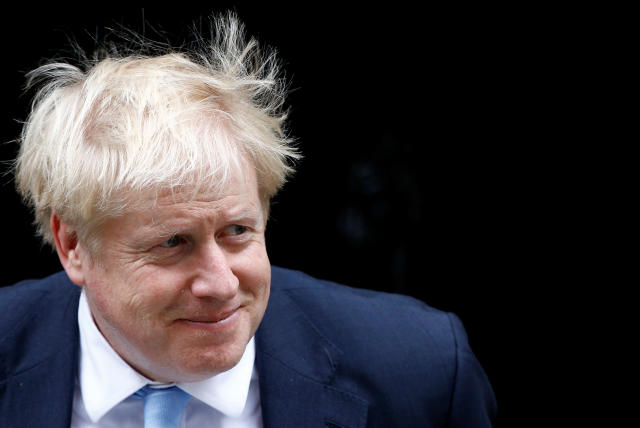Boris Johnson has struck a Brexit deal with the EU

The Prime Minister tweeted on Thursday morning: “We’ve got a great new deal that takes back control — now Parliament should get Brexit done on Saturday so we can move on to other priorities like the cost of living, the NHS, violent crime and our environment.”
EU Commission President Jean-Claude Juncker said the deal was a “fair and balanced agreement” and urged the EU Council to back it.
In a letter to European Council President Donald Tusk, Mr Juncker wrote: “While I deeply regret the outcome of the referendum of 23 June 2016, I continue to believe that the European Union is best served by an orderly and amicable withdrawal of the United Kingdom from our Union.
“Our hand should always remain outstretched as the United Kingdom will remain a key partner of the European Union in the future.”
What happens next?
The Prime Minister now faces the enormous challenge of persuading MPs to back his revised deal.
The Democratic Unionist Party (DUP) have not yet got behind Mr Johnson’s Brexit deal, saying this morning: “As things stand, we could not support what is being suggested on customs and consent issues, and there is a lack of clarity on VAT.”
The PM, who does not have a majority in Parliament, relies on the votes of the 10 DUP MPs to pass legislation. The Northern Irish party also influences the voting of the ERG, the hard Brexiteer group of Conservative MPs.
In order to get his deal through Parliament, Mr Johnson will also need to backing of a number of Labour MPs, as well as the 21 former Conservatives who were expelled from the party after voting to block no deal.
MPs will vote on the deal during an emergency session in the House of Commons on Saturday.
If Parliament fails to approve the deal, the PM is legally obligated to request a Brexit delay.
The EU Council also needs to approve the deal during a two-day summit in Brussels that began on Thursday morning.
What is in Boris Johnson’s Brexit deal?
It is understood the UK and EU agreed a final draft of a Brexit deal after a last-minute concession by Boris Johnson over the issue of the Northern Irish border.
The Prime Minister had initially been set a deadline of midnight on Tuesday to get a fresh agreement ahead of a crunch summit of EU leaders on Thursday and Friday.
Negotiators finally reached a consensus on Thursday after last-ditch talks.

The Prime Minister agreed to the EU’s proposal of a customs border between Northern Ireland and the rest of the UK – a proposal initially offered to Theresa May that she rejected on the grounds that it amounts to the break-up of the union.
Mr Johnson had already also accepted that Northern Ireland will remain in the EU’s single market for goods, although it is seeking to find a way to time-limit the arrangement.

Brexit secretary Stephen Barclay confirmed on Wednesday that Mr Johnson would abide by the law requiring him to delay Brexit if Parliament rejects a deal, which was brought in by MPs seeking to block a no-deal Brexit.
“I can confirm, as the Prime Minister has repeatedly set out, that firstly the Government will comply with the law, and secondly it will comply with undertakings given to the court in respect of the law,” he said.
Mr Barclay confirmed that the Government “will abide by” what is set out in that letter, following fears the PM could try to scupper an extension with a second contradictory letter or request to a member state to block an extension





